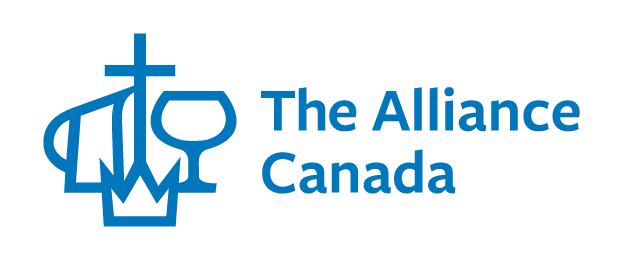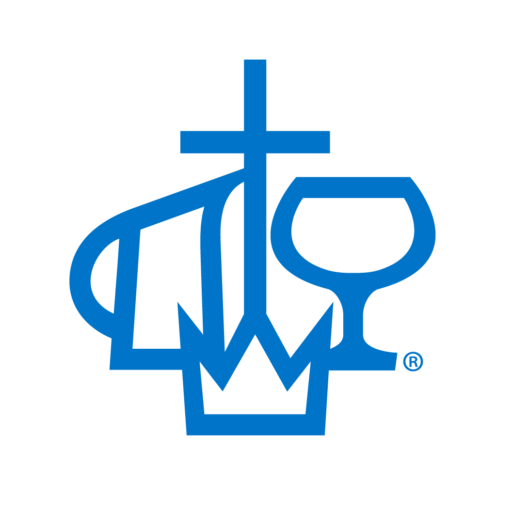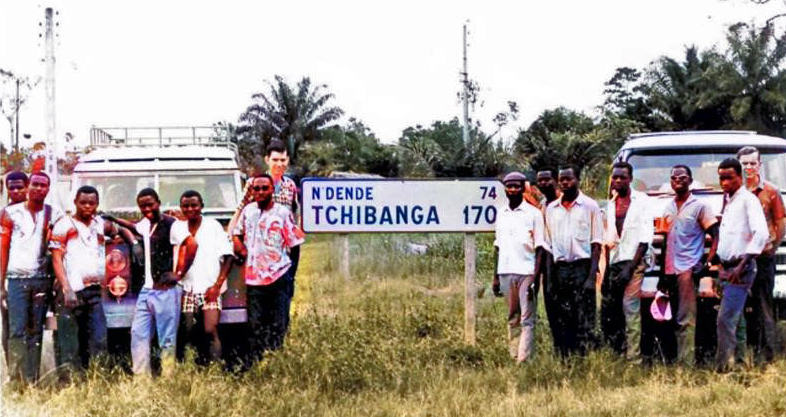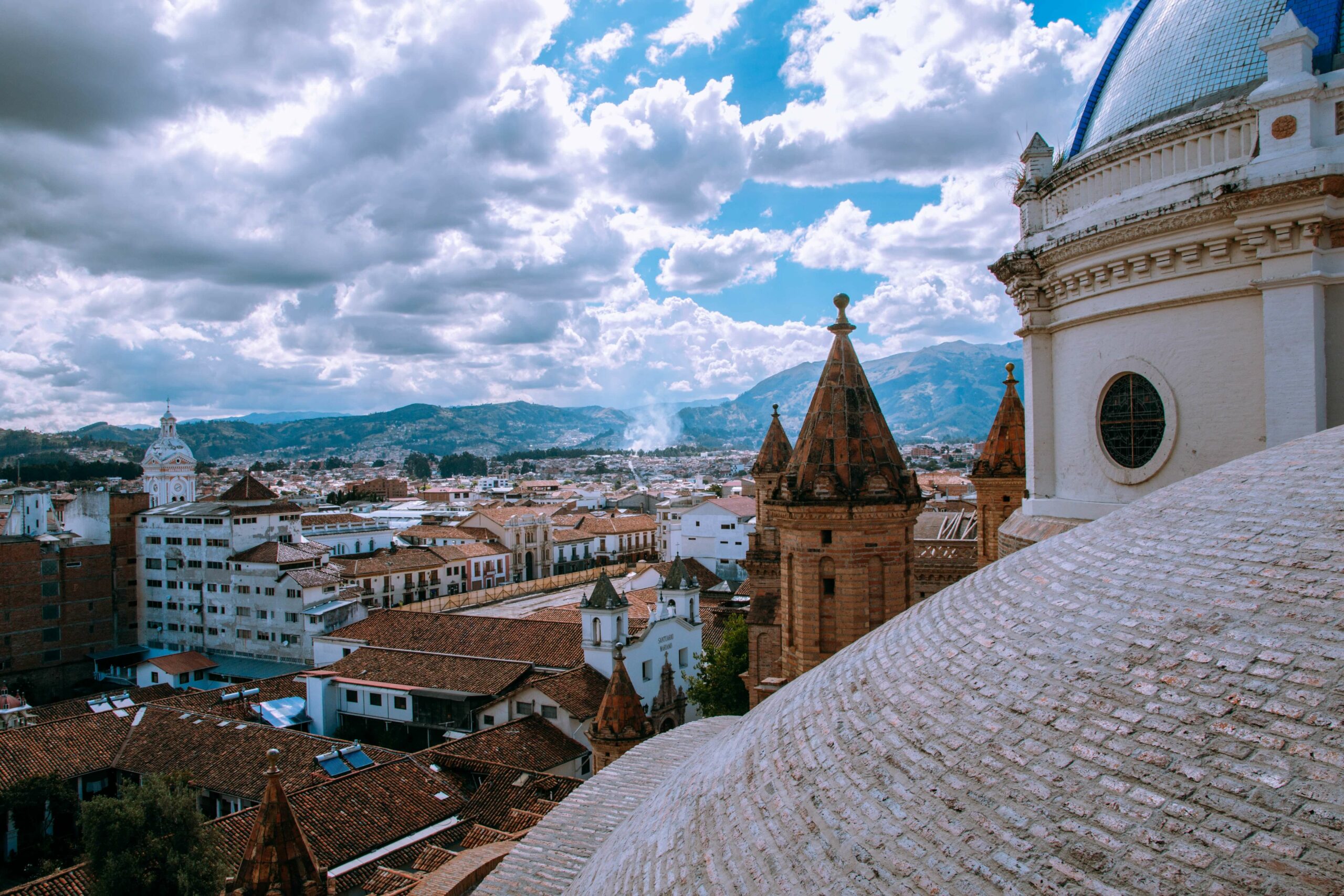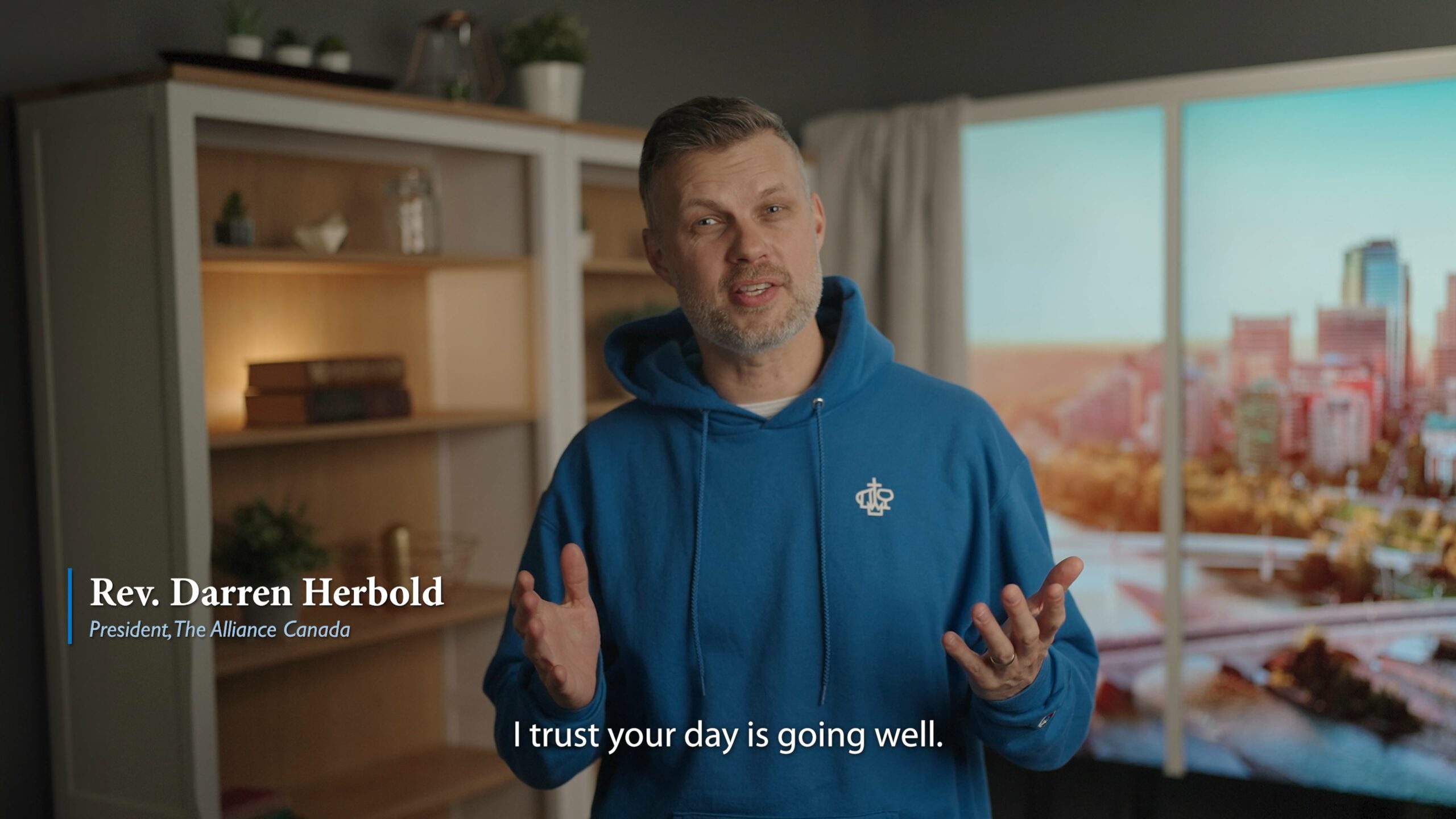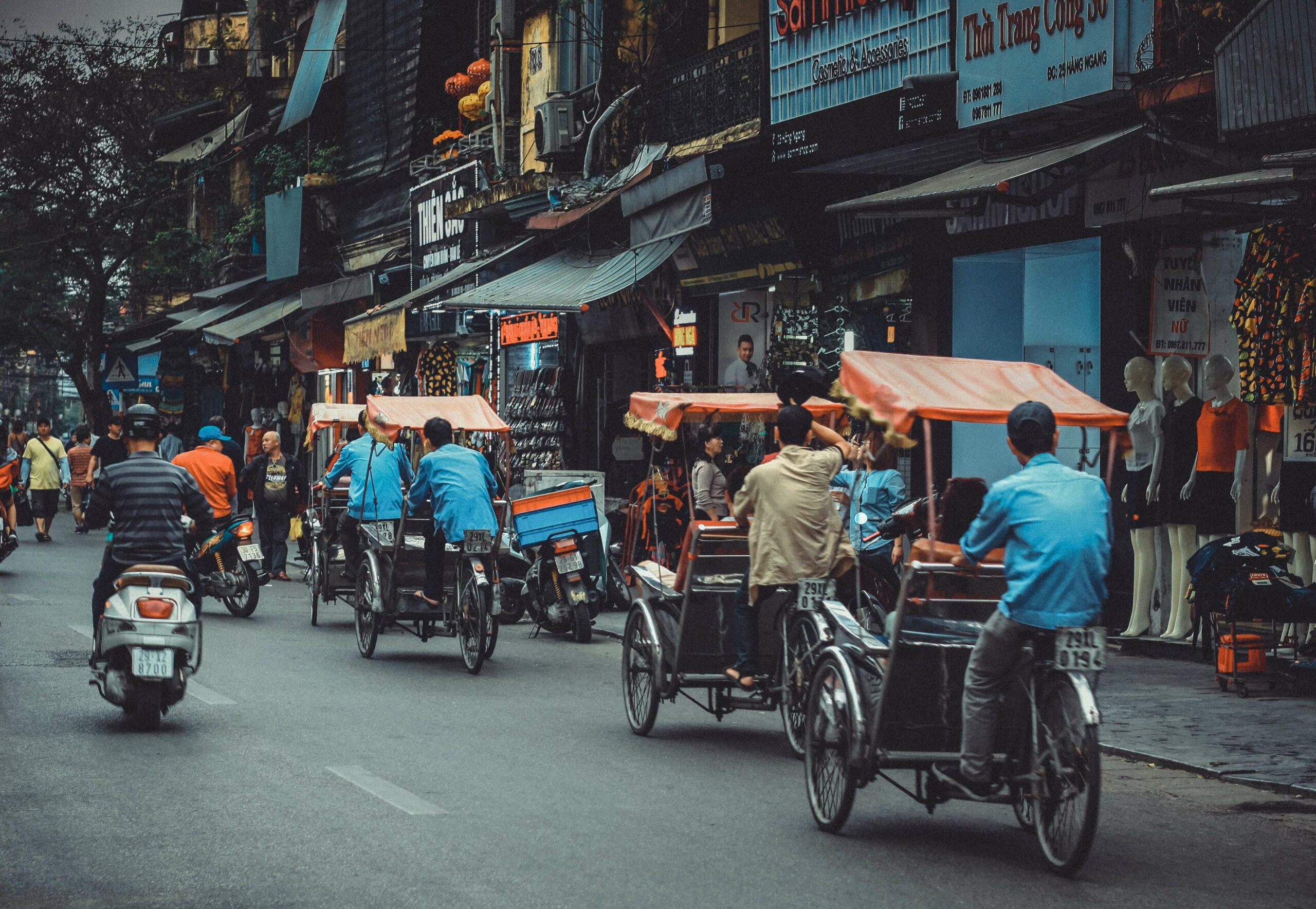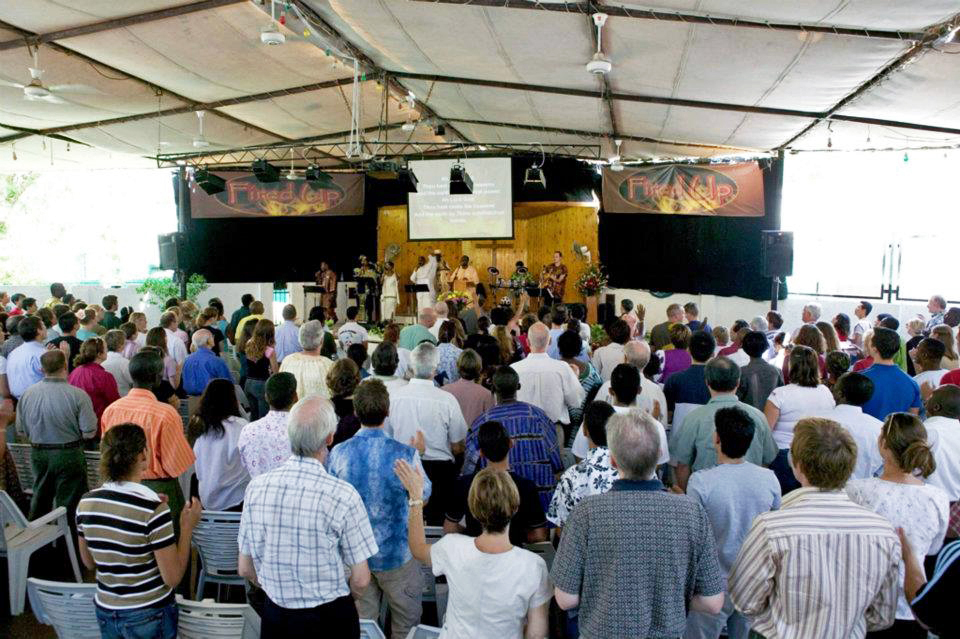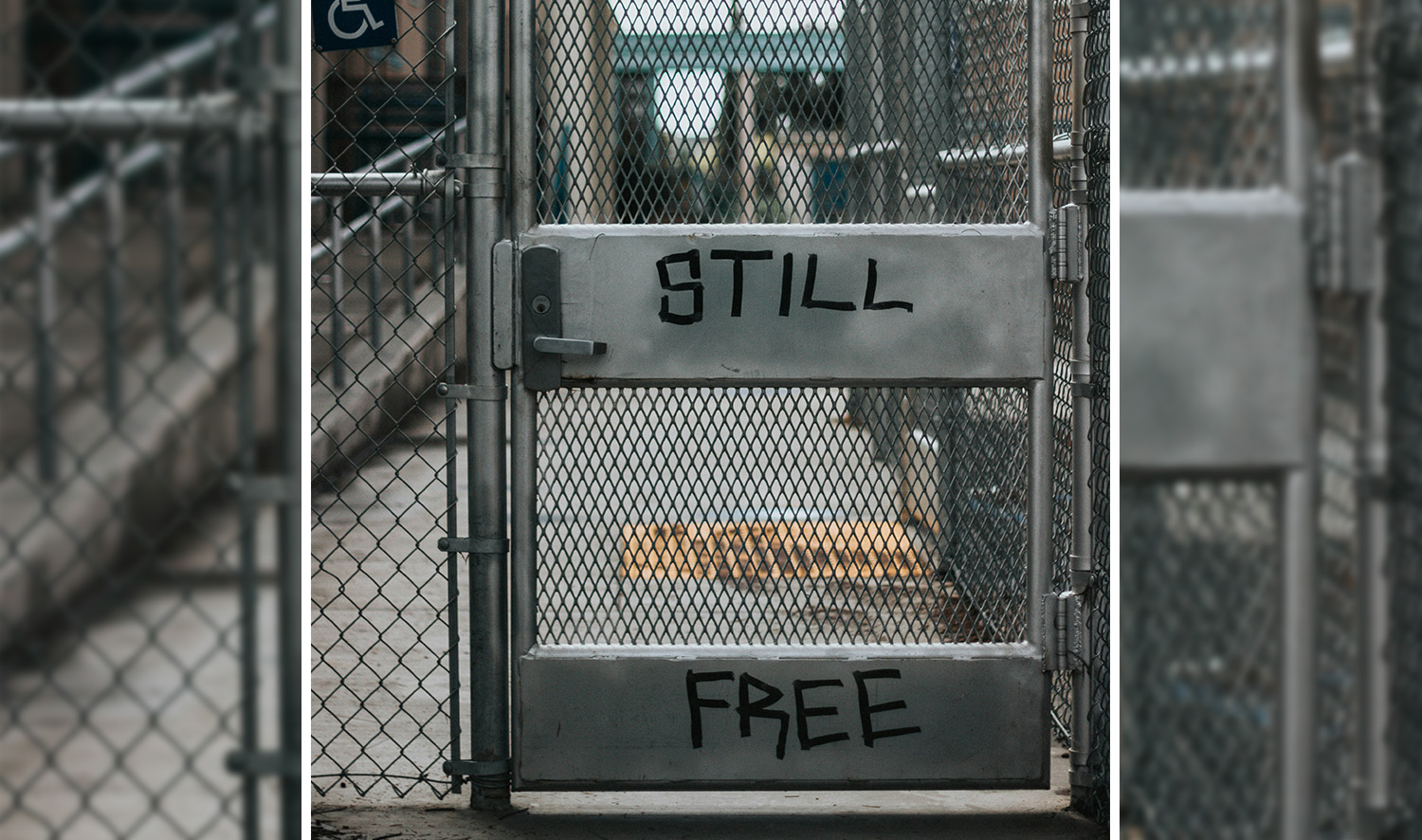It happened on the last Sunday of October 2019. Due to unforeseen circumstances, I missed my flight out of Vancouver for Montreal on Thursday, from where I was planning to fly into Brussels and meet my son Robin the next morning. We were then going to fly together to Kinshasa, Congo. Robin went on ahead, as there were no Brussels flights I could take until Sunday. I texted Robin from Brussels; he answered that he and Pastor Phillip would meet me in the Kinshasa airport baggage area at nine in the evening.
My flight landed on time, and I hurried off toward the terminal. I was first in line to go through passport control. A kind lady greeted me, and I responded, adding, “My name is Papa Donald, I am eighty-seven years old, and I have come again from the west of Canada just to greet you,” after which I gave her a big smile. She looked at me and then down the row of customs workers at different stations, saying out loud, this man is eighty-seven years old “regardez” or, “take a look.”
Though she held my passport in her hand, she never opened it. Instead, she shook her head, making sure that some of her co-workers were seeing what was happening, and handed me my passport, saying, “Monsieur, vous êtes le bienvenu chez nous, TOUJOURS,” which means “Sir, you are ALWAYS welcome here.” I thanked her kindly and headed for the baggage area expecting to see my son in a few moments. He was nowhere in sight, and I later learned the airport’s new rule only allowed passengers in that area.
Because I had three suitcases, including several small computers, I got a baggage cart and took my place beside the baggage carousel, not at all prepared for what happened next.
A kind-looking man, who I assumed was Congolese, came into the area, looking for someone. When he saw me, he came straight towards me. Stopping right in front of me and speaking in French, he asked, “Are you, Don Dirks?”
I glanced back to the conveyor belt and did not see my bags. By the time I turned around to my new friend, he was holding a sheet of paper with my name printed in bold block letters. I responded, “Je suis papa Donald, from the west of Canada.”
Then I shook his hand; it was real flesh and blood. He said, “Je suis militaire,” which means I am a soldier or warrior, although he was nicely dressed in civilian clothes.
I thanked him for helping me, and he instructed me not to touch my bags. “Just show me your bags, and I will handle them. That’s what I am here for.” Shortly, I saw my bags and pointed them out. He loaded them on the cart, which I pushed toward the big scanner through which all bags had to go. The conveyer belt was not running, so he put my top bag on the belt, looking behind the scanner to see who was operating it.
He recognized the person, and when they had exchanged greetings, the scanner operator signalled my bags were cleared to go. My helper quickly replaced the bag on my cart. We were now just a few steps from the exit doors. I might have taken two steps when I turned to thank my helper, but he was gone, nowhere to be seen! The only visible door was the exit where I was standing, and there were no other passengers nearby. I never got to say thanks, nor do I know what his real name was, but I believe that day I shook the hand of an angel.
As soon as I exited the terminal, Robin and Pastor Phillip were right there. Phillip told me he had not been able to arrange for someone to meet me. So, God did!
The Early Years
From the Canadian Prairies to Gabon’s jungles, to Paris’s cafés, my journey began the day I surrendered my life to the Lord at age fifteen. A grandmother’s prayer before I was born awakened my passion for missions, and my family’s devotion to God started a lifetime of service.
Along with my six siblings, I was born on Saskatchewan’s prairies, twenty miles north of Saskatoon, in a small town called Dalmeny. It was during the depression, so life was hard, but my God-fearing parents faithfully took our family to church every Sunday and led us in a daily devotional time of Bible reading, singing, and prayer. Mother played the guitar while we sang. My earliest recollection is singing at my mother’s knee.
By the time I was seven years old, my family had moved to Winnipeg, Manitoba, so my father could find work. The Alliance church in Winnipeg was four miles from where we lived. We walked there every Sunday, never skipping a service. Church was fun, especially Sunday school; I loved memorizing scriptures and competing for awards. The verses I learned in those early years have stayed with me through life, being a rock and a shelter many times.
Due to my oldest brother’s poor health, we moved to British Columbia when I was ten, settling in the beautiful Fraser River valley. A few years later, my mother developed Parkinson’s disease. With my father’s consent, I dropped out of high school at fifteen to take care of her. For the next three years, I took complete care of my mother during the daytime, doing the laundry, housekeeping, and cooking for a family of eight.
Though I did not realize it then, those years began to shape my life and prepare me for the missionary world God would lead me into. Mother never complained. She suffered silently; she prayed, and her faith in God never wavered. Her love for her family and her Saviour shone through brightly and became a model for me. Those years spent serving my precious family taught me a lot about compassion. It is an action word with no boundaries, and it can help heal the hurt in others.
At twelve, I made a commitment to the Lord by inviting Jesus into my life to be my Saviour. Three years later, during the Missionary Convention week at Chilliwack Alliance Church, the Lord spoke to me about giving my life to Him for missions. My mother told me that when I was a young boy, as soon as I could talk, I told her someday I would go to Africa. I’m sure she wondered where that came from.
I attended the Western Canadian Bible Institute and met a Montana beauty, Elma Toews, who became my wife. We married in 1955 when I still had one year left of my Bible school training. Elma, too, had made a commitment to God to serve wherever He would lead. By the time I graduated, we had applied to The Christian and Missionary Alliance (C&MA) to become career missionaries.
The Alliance required two years of home service, so I became the associate pastor at the Regina Gospel Tabernacle as soon as I graduated. We stayed two years. My job description was a full-time assignment; I became the choirmaster, the youth pastor, and the Sunday school superintendent.
The first year there, I also registered at the Regina college to earn my high school diploma after the Mission asked me to do so. During our second year, the church board asked if I would be the foreman for our church basement renovation. We had it dug out to pour concrete floors, which allowed us to build walls, partitions, and Sunday school rooms. We then learned our work in Regina would not be accepted as “home service” to qualify us for foreign service. In the late summer of 1958, we moved to Hythe, Alberta, to pastor the church there for seven months.
One happy day we received our marching orders to leave for Africa via France to start one year of language study. My family came to the train station in New Westminster to see us off. While saying goodbye to my grandmother, she started crying and told me, “When I heard your mother was expecting, I dedicated the baby to the Lord to become a missionary. I want you to know that before you leave.”
On July 4,1959, we sailed out of Pier 89 in New York; passing the Statue of Liberty, we crossed the North Atlantic, which took nine full days.
Reaping the Harvest in Gabon
We spent a hectic year in Paris; our son Robin was born in October, and full immersion language study filled our days. Then we flew to the Republic of Gabon in Africa. We did Yinzebi language study six hours a day from Monday to Friday for the first two years. There are forty-three tribes in Gabon, each with its own dialect. We were assigned to work with the Banzebi tribal people, of which there were twenty-six thousand people.
Missionaries had been pioneering in Gabon for over thirty years before our arrival, planting and watering the seeds of Christianity. We were there to reap the harvest from their efforts. I baptized over five hundred people our first term.
After our first home assignment, we returned to France in response to a request by the executive committee in Gabon to take advanced French language courses because the Church in Gabon wanted the Bible school taught in French. Gabon was a former French colony granted independence in 1960 with French as the country’s official language. It was used by the government, commercial industry, and schools.
When we returned to Gabon in 1967, we took over the Bible school, changing the teaching language from the local language to French. The first year Elma and I were the only teachers at this Bible Institute, with more missionaries coming to help the second year.
In 1968, we had an excellent start to the school year, but by the time we got into November, we noticed the students were becoming restless and were often distracted. Due to cultural problems and traditions, several of the young couples were married just before coming to this school, and now the pagan parents were putting on pressure for more dowry payments. My wife and I began to fast and pray. God showed us what to do. We would not close the school, nor would we continue teaching the courses.
One morning when we had our usual 8:00 am chapel time, I announced to all the students, starting that day, classes would not be taught; instead, at eight every morning, I would come, not to teach, but to pray. They were free to go home or to stay and join me. Every one of the students stayed, and every morning they all came to pray. A day and a half later, God moved in, and the Holy Spirit began a mighty work that turned to conviction and deep repentance.
We saw and felt the presence of God in our midst, and we did not want it to stop. Soon our morning prayer times expanded to full days. By the end of the first week, every student had met God in a new way. Some began to share, and the exposition of the Word they spoke was obviously revelations the Holy Spirit had shown them. We continued this regime until the Christmas break.
During this time, we received a letter from a French evangelist concluding his crusade in a neighbouring republic, offering to come to Gabon if he could serve our church. We invited him to come for two weeks and planned to begin nightly public services in the big Bongolo church. Before long, we filled the church every evening with a thousand people. The revival went on for several months. Soon the services became longer and went on until eleven or twelve every night.
We also set up a meeting platform across the river in the “Sous-Préfecture” in the centre of Lebamba. Every morning we would first meet for prayer with the church full of people. Then in the afternoon, trucks loaded full of workers came from the nearby mining and forestry camps. The young Bible school men preached with power and authority.
As in the Book of Acts, many were healed, and many demons were cast out in Jesus’ Name. One morning a man came with an urgent invitation, “Please come to my home. My daughter is writhing and foaming at the mouth, and we have to tie her to her bed. She hasn’t eaten for days.” One of the youngest men in our Bible school, Mark, usually the timidest, took the lead when we came to the home and prayed to expel the demon. The demon left with shrieks and audible protests. When the girl was set free, she asked for food.
We stayed and sang praises to God as the food was prepared and while she ate. Then we all formed a procession and marched back to the church, singing and praising God. The unbelieving pagans watched with amazement and wonder; many were added to the church in those days. What began as a revival among the Bible school students before Christmas was transferred to the local population centre. There is nothing as convincing for unbelievers as God’s obvious work setting people free, bringing healing, and transforming lives.
Another time in prayer at the Bible school, I asked the students to pray for five days to discern God’s choice regarding where to go with the revival message. They were not to discuss it with anyone else, then write the option on a piece of paper and put it in a box. When we opened the box, every student had written the same region; none of our students were from this particular region. When we went, we saw the mighty works of God. The news of the revival was being talked about across the country. Doors were opened to us in the public schools, and in some towns, the whole student body assembled to hear the gospel witness. In several instances, every child prayed to receive Christ.
Several months later, after the regular revival services had stopped, the Bongolo church had hundreds of people asking to be baptized. Discipleship teaching took place, and the church elders met with scores of candidates. One Sunday morning, I stood in the Louestsi River at six o’clock, waiting for the first new believer to come and be baptized. I baptized one hundred and forty-nine between six and nine o’clock that Sunday morning; forty-nine of them were high school students. It was in those days when the other missionaries started calling me “Don the Baptist.”
We served in Gabon for fourteen years. In 1973, we returned to America for a home assignment and were asked to transfer to France. The Mission asked me to accept an appointment in France as acting Board representative to lay the tracks for an ambitious church planting mission. This was a big decision, so Elma and I prayed to be sure in discerning the Lord’s leading. It would be a massive change for us to leave Gabon and start a new mission advance in a nation as religious as France.
Church Planting and Refugee Ministry
Elma and I were the first C&MA expat missionaries to be appointed to work in France. We went from revival and harvest in a land where many people were uneducated and steeped in Animism to a desert full of educated and enlightened people. Picture going from the jungles of Africa and the simple lifestyle of the Gabonese to the streets of Paris teeming with the chic, urbane multitudes wearing fashionable designer labels. We spent twenty-five years in Paris working with the Lord to plant twenty churches.
I first pastored the Boulogne French church for seven years while serving as the C&MA field director and helping to organize a Union of French Alliance Churches. Then God sent a mission field to our doorstep. French Indochina (Vietnam, Cambodia and Laos) was crumbling after the war in April 1975. Refugees poured into France at a rate of fifteen hundred every month, and sixty boarding homes were established throughout France. The churches of the Alliance union opened a refugee welcome centre.
We saw miracle after miracle. One evening as I listened to the TV news on “Antenne 2,” the mayor of Paris, Jacques Chirac, who later became the president of France, said on national television that the French people had a moral obligation to help the refugees. He also made a promise, “We (City Hall) will help in any way that we can to help all associations who take action.”
When I heard this pledge, I decided to ask for an audience with his excellence, the Mayor. After meeting with me in his ornate City Hall office, he put me on his classified mailing list, which told us where all the refugees were being sent. This opened the door for us to visit boarding homes scattered all over France for the next seven years while our refugee centre was open. Today some of the vibrant churches in the Alliance Union of churches are ethnic groups, such as Chinese, Vietnamese, Cambodian, and Laotian (or Hmong).
Computers and Mission Trips
Elma was diagnosed with Parkinson’s disease in 1990. We finally left France in 1997, returning to Canada for medical treatment. For five years, I was able to care for Elma at home. Then she moved into a nursing home until she went home to be with the Lord on March 13, 2007.
After Elma had gone to Heaven, I began praying and looking for ways to still serve the Lord and move forward. My health was good, and my burning heart was nudging me to keep going. When we accepted the Lord’s call to move to France, I left a part of my heart in Africa. Those years in Gabon were unforgettable.
In the summer of 2007, I heard about the University of the Nations (U of N) from friends and staff members Ralph and Dottie Meurer. They told me about the Kona, Hawaii campus and said my computer knowledge would certainly be welcome. My hobby for the last thirty years has been to tinker with computers. I prayed and felt led by the Lord to start March 10, 2008, for a three-month term. I went as a Mission Builder (volunteer) and did a second term for five weeks from early August to September 11.
The two trips to Hawaii were just a beginning. While Elma was in the assisted living home, I received several invitations to go to West Africa, but my priority was to be near Elma. So, in 2008 after my first trip to Kona and the U of N, I squeezed in a three-week trip to Burkina Faso, West Africa. It was a total success for me. I had gone to train nationals to rebuild, repair, and update equipment in a computer classroom at the Maranatha High school in Bobo Dioulassou. The church assigned seven young people to work with me so I could train and show them how to maintain and fix computers. We repaired hundreds of machines. In fact, my strategy was to have my helpers do all the hands-on work. They were amazed at how quickly they could restart many of the older computers. I had the time of my life and could not have been happier.
Then came a telephone call from a vast state-run Lycée (high school) where all the computers had quit working except for the new computer in the director’s office. The Internet connection had been lost. We dropped everything and went over to the school. Eventually, they brought us a pickup load of non-working computers. We were able to get over ninety percent of those old machines to work. Afterwards, the State business college called and wanted help, so we repaired all but two of their devices.
Then the Muslim colleges, which had two campuses, called and asked if we would help them. Etienne, my chauffeur and guide, took the call in French. I heard the whole conversation. He greeted the rector cordially and then asked, “how can we help you?” The director said, “We hear that papa Donald has come to train and help schools with their computers. Would you be willing to come and help us?”
Etienne looked at me for a sign; I answered without any hesitation, “let’s go.” It was about ten in the morning, so we packed up our tools and equipment and drove across town. I divided the team and stayed at the first campus while sending the other half to the next site. I knew they would do fine with what I had shown the students, but I promised them I would come to help if needed. After about three and a half hours, the other team called to say that they had all the computers running. By five-thirty that evening, all the computers on the two campuses were functioning.
We drove back that evening to work on the machines at the offices of the church. A little later, the rector of the Muslim colleges called Etienne again. His greeting was very cordial, saying he was calling to thank us. But he went on to say, and I heard every word, “Why did you do that? Papa Donald came to help you and your schools, but you left that to come and help us.” Etienne’s answer was priceless.
“Monsieur le Rector, you are my neighbour, aren’t you?” The response was affirmative. Then I heard Etienne say, “We are followers of Jesus who teaches us to love and serve our neighbours, so that is why we came.” I thought to myself, “This is payday; this alone makes my trip worthwhile.”
I made eleven mission trips through the next ten years—Burkina Faso and Guinea in West Africa and the Democratic Republic of the Congo (DRC). On our second trip to the DRC, Robin and I stopped over in Libreville, Gabon, where I had begun my missionary career in Africa. Unforgettable! My hobby got me to those countries to help fix computers, but I was invited to preach, teach, or share my life story everywhere I went. Knowing the language’s culture and fluency were huge assets, and my hobby did the rest.
On my first visit of five trips in Guinea, we stopped for several days at the Telekoro Bible Institute. Arriving late in the day, we were billeted in the guest house. At eight in the evening, the director came to see me and to ask if I would be willing to speak in the chapel service at eight the next morning. He mentioned the service began with all the students and their wives and usually lasted thirty minutes; then he said, “but for you, it will be a ninety-minute service.” On every one of my visits to follow, it was the same. A Swiss Mission worked in the same city; some of their leaders and people also came for the chapel services.
Five years ago, I was asked by the leaders of the C&MA churches in the USA to go to the DRC and install computers in the offices of their home base. This is one of the most prominent evangelical Churches in the Congo. They have seven hundred churches and one million and six hundred thousand members. Kinshasa, the capital with about thirteen million souls, has seventy Alliance churches. Even so, the National Church offices still had no computers.
I was invited to go and install computers in their offices and connect them to the Internet. They bought the equipment in Kinshasa and then brought all the boxes to Boma, the seat of the association, to store them in a safe place. They would not let anyone touch those boxes until I arrived four months later. My son Robin had a long wait to get a visa, so we were delayed almost two months. By the time we left, they had six offices equipped with brand new state-of-the-art equipment and a good Internet connection.
On this trip to the DRC, God reminded me once again of what the Great Commission includes. More or less, we all get the part about, “Go into all the world…” and “Go preach and teach … go and make disciples.” But our work assignment comes with an enormous and unlimited promise, “I will be with you always.”
So, when we arrived and went into the Kinshasa airport baggage area, Pastor Phillip welcomed us. He had promised to meet us. A few minutes later, a man walked up to greet and welcome us and then walked us through the formalities. He was wearing a badge and came from the Presidential Palace with orders to help us. He took our passports, health cards, and tickets, saying, follow me. We noticed everyone on duty to check passports, baggage claims, and scanners for arriving passengers were very careful to greet him like a palace worker; we walked through all the security and never said a word to even one official. When we left the DRC after our visit, he was there again.
It was the same for the whole trip. In the lower Congo, the deputy for the entire region, a member of the church, drove us around in his new chauffeur-driven vehicle. In Kinshasa, a prominent city lawyer and church member took time to haul us around to our appointments. On the first day after we arrived in Boma, we had a one-hour meeting with the mayor. Before we left his office, the church president with us asked me to pray for the mayor and for the city of Boma.
A few years ago, Robin, who has been a missionary with the C&MA for thirty-five years, travelled with me to Conakry, Guinea. I was flying out of Vancouver to Chicago, where I would meet Robin for our continuing flight to Brussels. But our Friday flight from Brussels to Conakry had been cancelled. The airlines had connected with Robin at his home in Columbia, South Carolina, to book him through Paris on Air France, but I was not informed. So, I flew to Chicago and was met by Robin, who took me to the Delta counter where I was put on the flight with him to Paris. After a three-and-a-half-hour wait in Paris, we boarded our flight to Conakry.
So far, so good. Eight hours later, as we walked into the Conakry terminal, Robin remembered he had not sent word to Steve Albright, who was to meet us. Our Air France flight arrived more than one hour ahead of the Brussels Air flight we were originally booked on. Since Robin had lived many years in Conakry, he decided we could take a taxi, so he called Steve and told him to turn around and go home. What we did not know at the moment was our taxi was already on its way to meet us.
We cleared customs formalities quickly and went to the baggage area. Robin’s bags arrived without delay, but mine were taking more time. Then something strange happened. I saw a Guinean man walk into the baggage area and look around, and it seemed to me like he was looking for Robin. When Robin saw him, he went over, and they greeted each other with hugs, a real show of friendship.
Robin brought his friend over to introduce me. This was the man who used to haul water to Robin and Donna’s home in the years they lived in Conakry. But what he shared next made me sure God is in the business of meeting missionaries. This man was now a taxi driver with a Land Cruiser. He awoke from a deep sleep early in the morning, and something kept telling him he needed to meet the Air France flight from Paris that evening. The only problem was he could not remember who had told him. We assured him we knew exactly who had told him. He used to haul loads for the mission headquarters, too, so he knew exactly where to deliver these untimely missionaries. As we drove through the crowded streets, the words of Isaiah 65:24 ran through my mind, “Before they call, I will answer.”
When we show up for work, God shows up too. It’s true. God always keeps His promises. “I will be with you always.”
And the story never ends.
This is an excerpt from the book, On Mission Volume 1. Download your free copy today.
Share:
Find more posts about:
The Alliance Canada
Support the mission
The Global Advance Fund (GAF) is a pooled fund that supports our workers in Canada and around the world to share the Gospel with people who haven't yet heard the name of Jesus. Your continued generosity equips and sustains our workers and their ministry.
